
Frontiers of Chemical Science and Engineering
Scope & Guideline
Exploring the Frontiers of Chemical Knowledge
Introduction
Aims and Scopes
- Catalysis and Reaction Engineering:
Research in this area includes the development and optimization of catalysts for various chemical reactions, focusing on improving efficiency and selectivity in both homogeneous and heterogeneous catalysis. - Materials Science and Nanotechnology:
The journal publishes studies on the synthesis, characterization, and application of advanced materials, particularly nanomaterials, which exhibit unique properties for applications in energy, environment, and biotechnology. - Environmental Chemistry and Engineering:
This scope encompasses studies related to chemical processes for pollution control, waste treatment, and resource recovery, emphasizing sustainable practices and the development of green technologies. - Energy Conversion and Storage:
Research on innovative methods for energy conversion, such as electrochemical systems, solar energy utilization, and biomass conversion, is a significant focus, aiming for sustainable energy solutions. - Computational Chemistry and Chemical Engineering:
The journal encourages submissions that utilize computational methods to model chemical processes, predict material behavior, and optimize engineering designs, contributing to the understanding of complex chemical systems. - Biochemical Engineering and Biotechnology:
This area covers the application of chemical engineering principles to biological systems, including enzyme engineering, bioprocess optimization, and the development of biocatalysts for sustainable chemical production.
Trending and Emerging
- Machine Learning and Data-Driven Approaches:
There is an increasing trend in utilizing machine learning techniques for optimizing chemical processes, modeling reactions, and predicting material properties, highlighting the integration of artificial intelligence in chemical engineering. - Sustainable and Green Chemistry:
Research focused on sustainable practices, including waste valorization, green synthesis methods, and the development of eco-friendly materials, is gaining traction as environmental concerns become more critical in chemical research. - Electrocatalysis and Renewable Energy:
The emergence of studies on electrocatalytic processes for energy conversion and storage, particularly in the context of hydrogen production and CO2 reduction, indicates a growing interest in renewable energy technologies. - Advanced Membrane Technologies:
Innovations in membrane-based separation processes for water treatment, gas separation, and energy applications are increasingly highlighted, reflecting the importance of membranes in addressing environmental and energy challenges. - Biomaterials and Bioengineering:
There is a notable rise in research related to biomaterials for medical and environmental applications, emphasizing the role of chemical engineering in developing materials for healthcare and sustainability.
Declining or Waning
- Traditional Organic Synthesis:
Research focused solely on classical organic synthesis methods without integration into broader applications or innovative techniques appears to be decreasing, as the field moves towards more sustainable and integrated approaches. - Conventional Polymer Science:
Studies that primarily address traditional polymer science without incorporating advanced materials or nanotechnology aspects are less frequently published, reflecting a shift towards more innovative and application-oriented research. - Fundamental Physical Chemistry:
Papers that solely investigate fundamental aspects of physical chemistry without direct application to chemical engineering processes or materials are becoming less prominent, as the journal favors more interdisciplinary work.
Similar Journals

Chemical Engineering Journal Advances
Elevating Chemical Engineering Knowledge through Quality Research.Chemical Engineering Journal Advances, published by Elsevier, is a premier open-access journal dedicated to advancing research and innovation in the field of chemical engineering. With its inception in 2020, the journal has quickly established itself as a key player in disseminating high-quality, peer-reviewed articles, boasting an impressive Q1 ranking in Chemical Engineering and related disciplines for 2023. The journal covers a broad spectrum of topics, including industrial processes, environmental chemistry, and innovative manufacturing techniques, making it essential reading for researchers and professionals aiming to stay at the forefront of chemical engineering advancements. With its commitment to open access, Chemical Engineering Journal Advances ensures that groundbreaking research is readily available to the global scientific community, fostering collaboration and knowledge exchange. Situated in the Netherlands, the journal supports its authors with a robust platform for impactful research dissemination, highlighted by a solid position in the Scopus ranks, indicating its influence and relevance in the field.
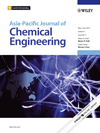
Asia-Pacific Journal of Chemical Engineering
Shaping Tomorrow's Innovations in the Asia-Pacific Region.The Asia-Pacific Journal of Chemical Engineering, published by WILEY, serves as a vital forum for the dissemination of innovative research in the interdisciplinary domains of chemical engineering, renewable energy, sustainability, and waste management. Established in 2006, this esteemed journal has achieved a notable impact factor that reflects its commitment to advancing knowledge and practices within the chemical engineering community. With its Q3 category rankings across various fields, including Chemical Engineering (Miscellaneous), Renewable Energy, Sustainability and the Environment, and Waste Management and Disposal, the journal holds a significant position among its peers, assuring readers of quality and relevance in published content. Although it does not offer Open Access options, the Asia-Pacific Journal of Chemical Engineering remains an essential resource for researchers, professionals, and students aiming to stay at the forefront of innovations affecting the Asia-Pacific region and beyond. The journal's broad scope covers diverse topics, making it an integral part of the academic landscape from 2006 to 2024.

Journal of Chemistry and Technologies
Advancing Chemistry, Inspiring Innovation.The Journal of Chemistry and Technologies, published by OLES HONCHAR DNIPROPETROVSK NATIONAL UNIVERSITY, is an open access journal dedicated to advancing knowledge in the broad fields of chemistry and chemical engineering since its inception in 2013. With ISSN 2663-2934 and E-ISSN 2663-2942, this journal provides a vital platform for researchers and professionals, particularly in Ukraine and beyond, to share innovative research findings and contemporary technological advancements. Currently ranked in the Q4 quartile in both Chemical Engineering and General Chemistry for 2023, it serves as an enriching resource for those interested in emerging trends and interdisciplinary studies within these domains. The journal adheres to high academic standards while fostering collaboration in the scientific community by offering open access articles that ensure visibility and accessibility to a global audience. As an important part of the academic landscape, the Journal of Chemistry and Technologies aims to inspire future research and development, paving the way for new discoveries and applications in chemistry-related fields.
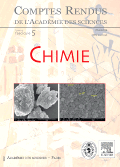
COMPTES RENDUS CHIMIE
Fostering Global Collaboration in Chemical Sciences.COMPTES RENDUS CHIMIE, published by the prestigious Académie des Sciences in France, stands as a significant journal in the fields of chemistry and chemical engineering. With an ISSN of 1631-0748 and an E-ISSN of 1878-1543, this open-access journal has been committed to disseminating high-quality research since its transition to open access in 2020. Featuring a diverse array of studies, the journal covers innovative research trends and applications, while maintaining a Q3 category ranking in both Chemical Engineering (miscellaneous) and Chemistry (miscellaneous) as of 2023. Its Scopus rankings, positioning at #251 out of 408 in general chemistry and #169 out of 273 in general chemical engineering, highlight its growing impact within the scientific community. Authored by a global cohort of scientists and researchers, COMPTES RENDUS CHIMIE is dedicated to the advancement of knowledge and sharing insights that are vital for ongoing research and development in the chemical sciences. Located in the heart of Paris at 23 Quai de Conti, 75006, France, the journal is an essential resource for those passionate about chemistry and engineering disciplines, fostering collaboration and innovation across the world.

Green Chemical Engineering
Leading the charge in green chemistry advancements.Green Chemical Engineering, an esteemed journal published by KEAI PUBLISHING LTD, plays a pivotal role in advancing the field of sustainable chemical engineering. With an Open Access policy since 2020, this journal facilitates the free exchange of cutting-edge research and innovations that address critical environmental challenges. Based in China, it has rapidly gained recognition with impressive category quartiles, ranking Q1 in numerous relevant fields including Catalysis, Chemical Engineering (miscellaneous), Filtration and Separation, and Process Chemistry and Technology. Its presence in Scopus highlights its significance, with top rankings (e.g., Rank #4/19 in Filtration and Separation) placing it in the upper echelons of chemical engineering literature. Designed for researchers, professionals, and students alike, Green Chemical Engineering aims to foster a collaborative platform for the dissemination of pioneering work that contributes to a greener and more sustainable future.
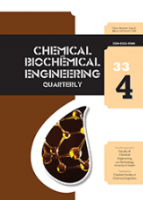
CHEMICAL AND BIOCHEMICAL ENGINEERING QUARTERLY
Bridging Academia and Industry in Chemical InnovationsCHEMICAL AND BIOCHEMICAL ENGINEERING QUARTERLY, published by the Croatian Society of Chemical Engineering Technology, is a distinguished open-access journal that has been providing a platform for the dissemination of innovative research since its inception in 1987. With a focus on the fields of biochemistry and chemical engineering, this quarterly journal addresses a wide array of topics, including process chemistry and technology, making significant contributions to both academia and industry. Despite its current positioning in the Q4 category for biochemistry and Q3 for miscellaneous chemistry and process chemistry in 2023, the journal continues to strive for greater impact, catering to researchers, professionals, and students alike. Its open-access model, in place since 2001, ensures that cutting-edge research is accessible to a broad audience, fostering collaboration and knowledge sharing within the scientific community. By promoting high-quality research and providing insights into the latest advancements, Chemical and Biochemical Engineering Quarterly remains an essential resource for those involved in the chemical and biochemical engineering disciplines.
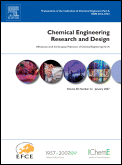
CHEMICAL ENGINEERING RESEARCH & DESIGN
Pioneering Research in Chemical Engineering Excellence.CHEMICAL ENGINEERING RESEARCH & DESIGN is a prestigious journal that has been at the forefront of dissemination in the fields of chemical engineering and general chemistry since its inception in 1983. Published by Elsevier, the journal features a rich array of research articles that contribute to both theoretical and practical advancements in the discipline. With an impact factor that positions it strongly within the Q2 quartile for both Chemical Engineering and Chemistry categories, it occupies an esteemed place in the academic community, being ranked #77 out of 273 in Chemical Engineering and #111 out of 408 in General Chemistry on Scopus. Researchers and professionals will find it an invaluable resource for cutting-edge research and innovative methodologies that shape the future of chemical engineering applications. While the journal does not currently offer open access, it remains accessible through institutional subscriptions, ensuring that important findings continue to reach a broad audience. With a scope that is poised to expand through 2024, the journal aims to foster collaboration and knowledge sharing, supporting the continuous evolution of the field.
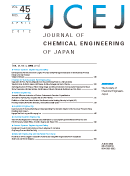
JOURNAL OF CHEMICAL ENGINEERING OF JAPAN
Catalyzing Knowledge in Chemical ProcessesJOURNAL OF CHEMICAL ENGINEERING OF JAPAN is a distinguished academic publication in the field of chemical engineering and chemistry, published by Taylor & Francis Ltd. With its ISSN 0021-9592 and E-ISSN 1881-1299, this journal has been a vital resource for researchers and practitioners since its inception in 1968 and continues to provide essential insights and advancements through 2024. The journal operates under an Open Access model as of 2023, promoting wider dissemination of research findings and encouraging collaboration within the global scientific community. Currently categorized in the Q4 quartile for both Chemical Engineering and Chemistry (miscellaneous) in 2023, it ranks within the lower percentiles of its respective fields, offering a platform for emerging scholars to publish their work and gain visibility. As part of Japan's academic landscape, it addresses numerous aspects of chemical engineering, fostering innovation and technical development that contribute to the industry's growth. Engaging with this journal is paramount for those looking to stay informed on the latest research trends and applications in chemical processes.
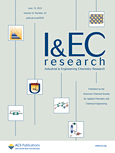
INDUSTRIAL & ENGINEERING CHEMISTRY RESEARCH
Connecting Theory and Practice in Chemical InnovationINDUSTRIAL & ENGINEERING CHEMISTRY RESEARCH, published by the American Chemical Society, is a pivotal journal that disseminates high-quality research in the fields of Chemical Engineering, Chemistry, and Industrial and Manufacturing Engineering. With an impressive impact factor, this journal ranks in the top quartile (Q1) across multiple categories, reflecting its significance and influence within the scientific community. Since its inception in 1987, IECR has provided a platform for researchers, professionals, and students to publish innovative findings that advance the understanding and application of engineering chemistry. Though it operates under a subscription model, the journal continues to foster collaboration within the field, inviting contributions that span theoretical advancements, experimental studies, and practical applications. Whether you are engaged in academia or industry, IECR serves as a vital resource for staying abreast of the latest developments in chemical and engineering research.
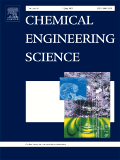
CHEMICAL ENGINEERING SCIENCE
Transforming Ideas into Solutions for a Sustainable FutureChemical Engineering Science is an esteemed journal published by Pergamon-Elsevier Science Ltd, dedicated to advancing the field of chemical engineering through high-quality research and innovation. With a storied history spanning from 1951 to 2025, this journal is recognized as a leading platform for disseminating cutting-edge studies, encompassing a diverse range of topics within chemical engineering, applied mathematics, and industrial engineering. Notably, it holds a prestigious Q1 ranking in several categories, including Chemical Engineering and Industrial and Manufacturing Engineering, indicating its significant impact and influence in these fields. The journal is not open access, yet it maintains a robust readership and is widely cited in academic circles, reflecting its vital role in shaping modern engineering practices. As a vital resource for researchers, professionals, and students alike, Chemical Engineering Science continues to bridge theoretical concepts and practical applications, fostering a deeper understanding of the complex challenges in chemical processes and manufacturing.